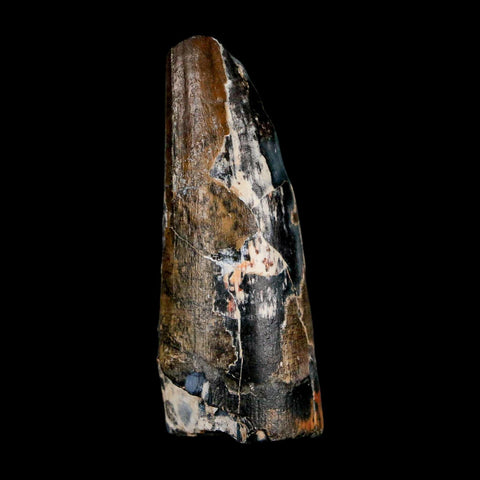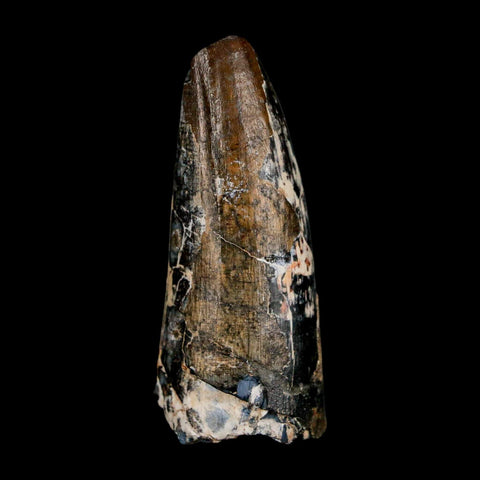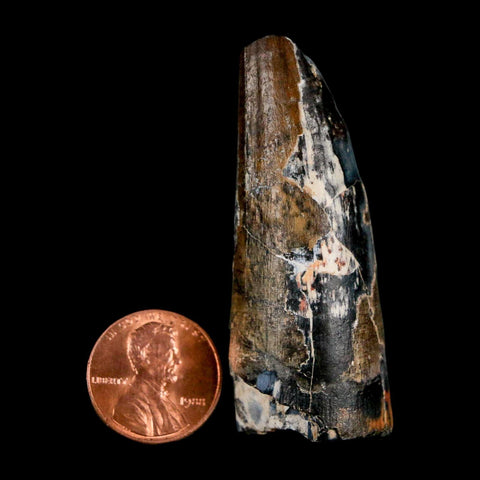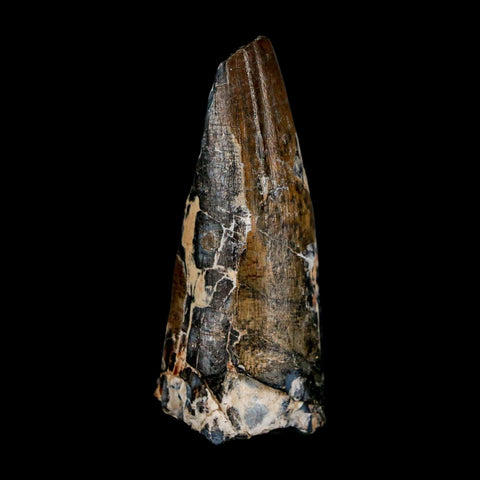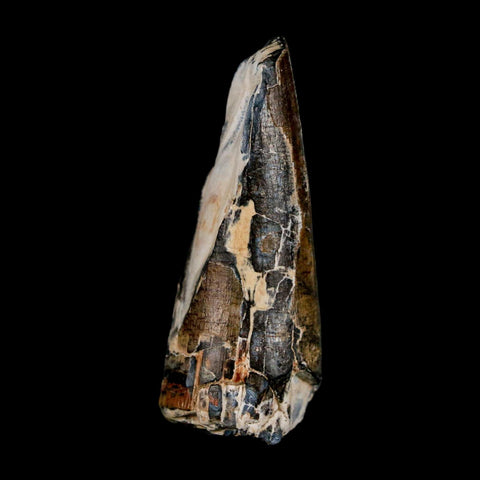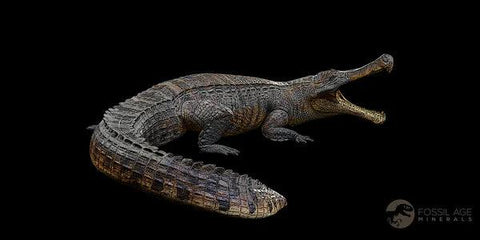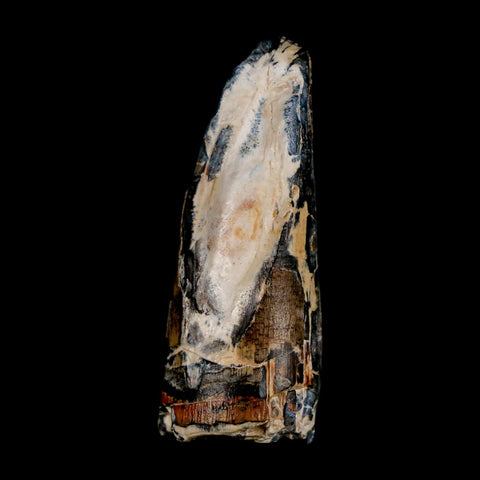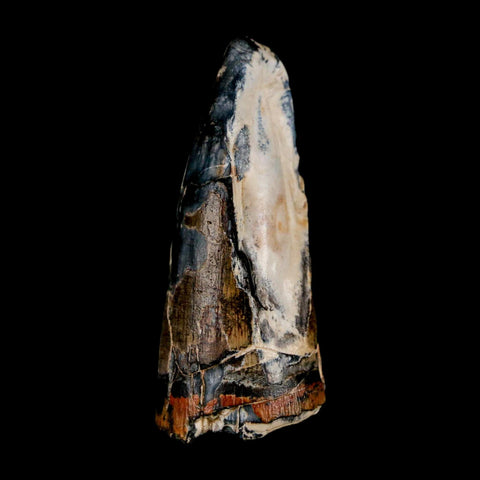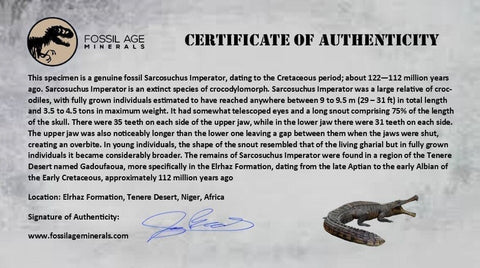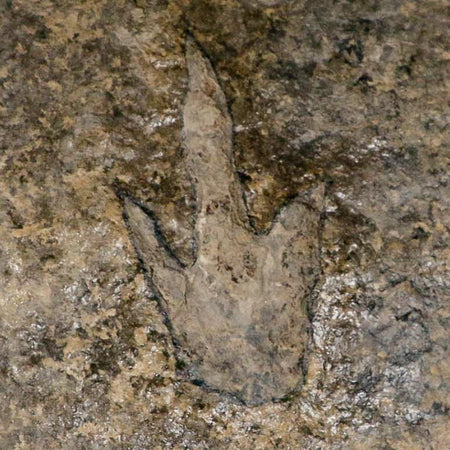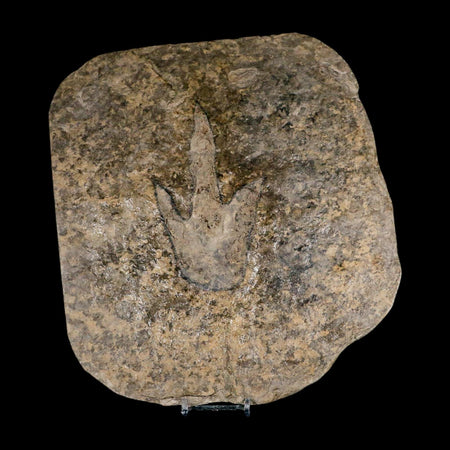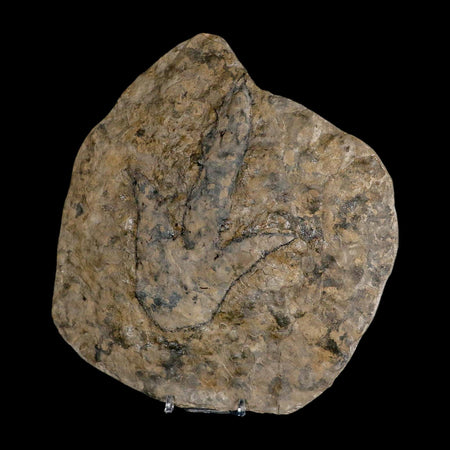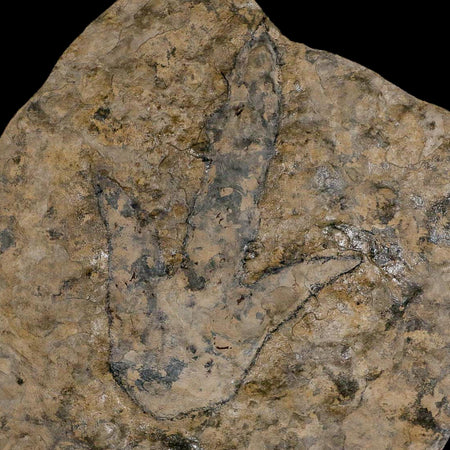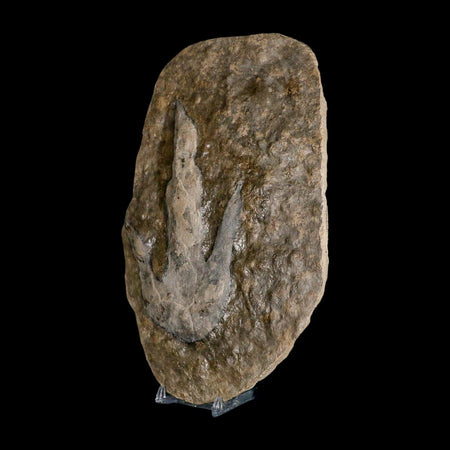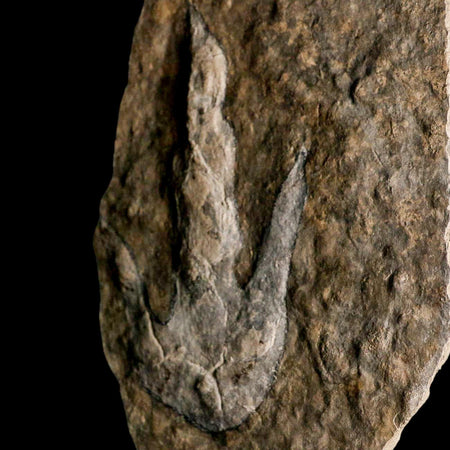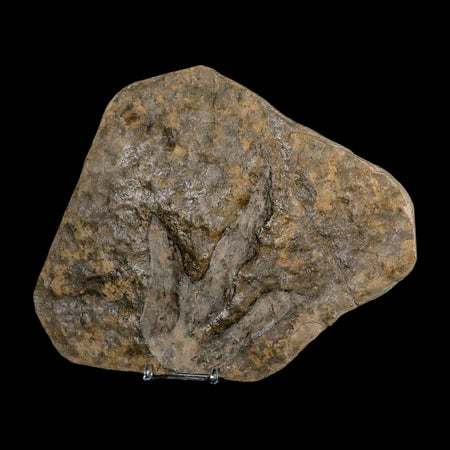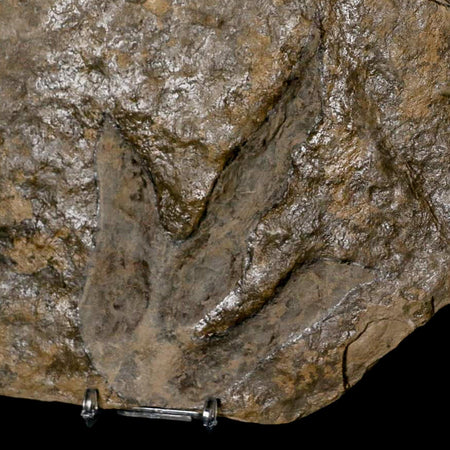2.3" Sarcosuchus Imperator Crocodile Fossil Tooth Elrhaz FM Cretaceous Niger COA
Location: Elrhaz Formation, Tenere Desert, Niger, Africa
Weight: 1 Ounce
Dimensions: 2.3 Inches Long, 0.9 Inches Wide, 0.8 Inches Thick
Come with a Certificate of Authenticity.
The item pictured is the one you will receive.
From the Cretaceous Age, 122 - 112 Million Years old.
Sarcosuchus imperator (meaning "flesh crocodile" in Greek) was an extinct crocodylomorph species that lived approximately 122 to 112 million years ago during the Cretaceous Period. Its fossils were discovered during multiple expeditions led by French paleontologist Albert-Félix de Lapparent from 1966 to 1970 in the Sahara Desert. These remains included skull fragments, vertebrae, teeth, and scutes. In 1964, the French CEA found an almost complete skull in Niger, but it wasn't until 1997 and 2012 that most of its anatomy was understood. Sarcosuchus imperator was a large relative of modern crocodiles, with adults estimated to reach between 9 and 9.5 meters (29–31 feet) in length and weigh up to 4.5 tons. It had somewhat telescoped eyes and a long snout that made up 75% of the skull's length. Each side of its upper jaw bore 35 teeth, while the lower jaw had 31 teeth on each side. The upper jaw was noticeably longer than the lower, creating a gap when the jaws closed, resulting in an overbite. Juveniles had a snout shape similar to that of the gharial, but in adults, it became broader. Fossils were discovered in the Gadoufaoua region of the Ténéré Desert, within the Elrhaz Formation of the Tegama Group, dating from the late Aptian to early Albian stages of the Early Cretaceous, about 112 million years ago.



